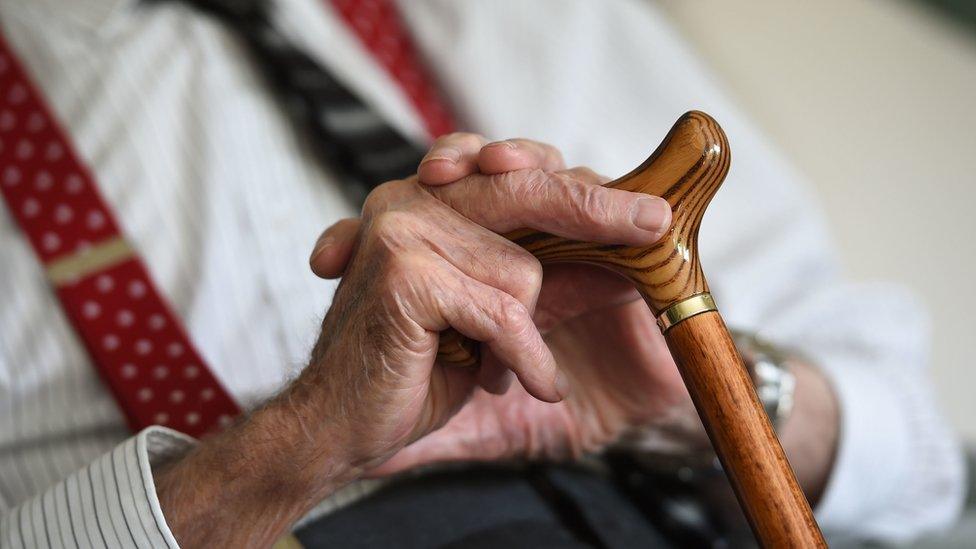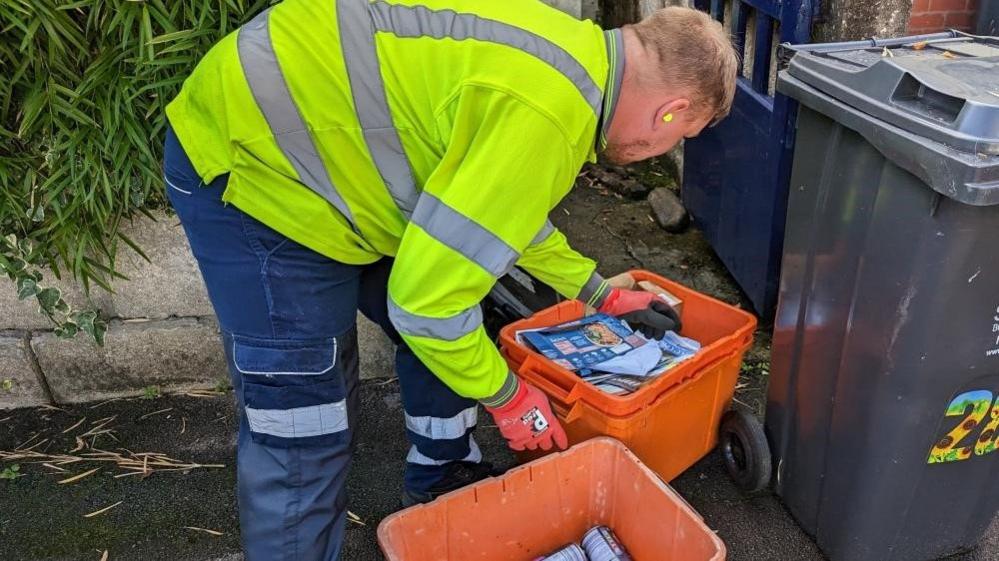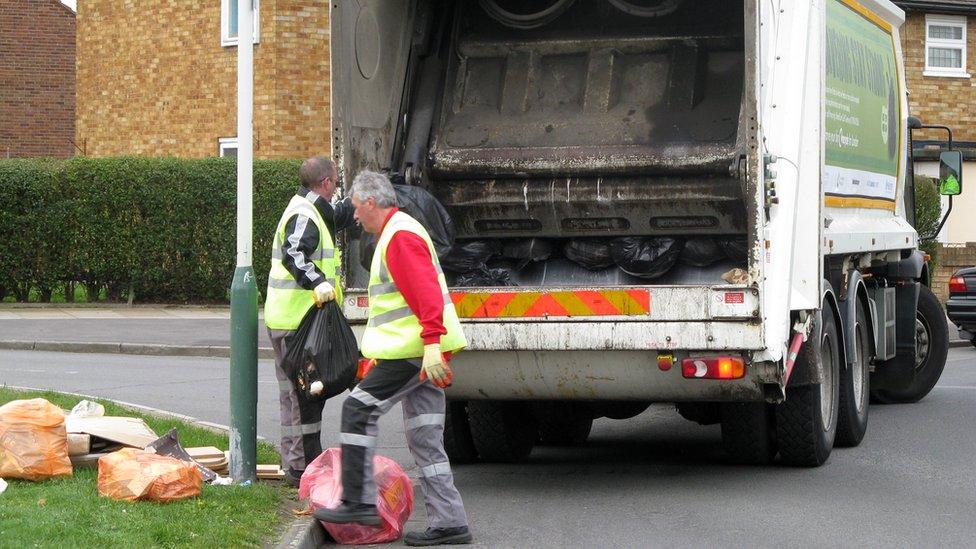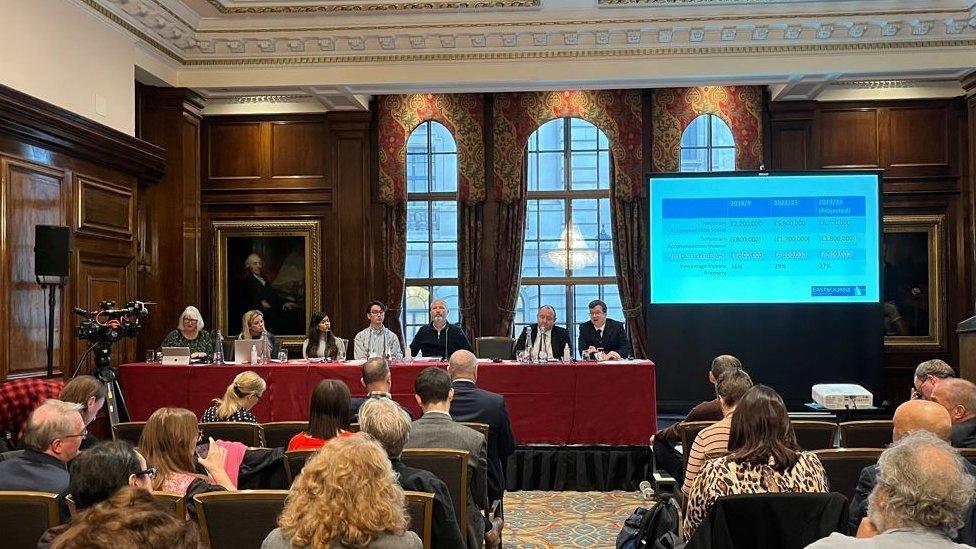Councils to get extra funding to tackle cash crisis
- Published
- comments

England's local authorities will receive a £600m funding boost from the government following recent warnings of further bankruptcies.
Communities Secretary Michael Gove said they would share £500m to help fund children's and adult social care.
In December, he announced a total of £64bn would be made available to councils for 2024-25.
Earlier this week, more than 40 Tory MPs signed a letter urging Rishi Sunak to increase that to avert major cuts.
The letter, external, organised by the cross-party County Councils Network (CCN) and signed by several former cabinet ministers, warned that, without emergency cash, many authorities would be forced to cut frontline services and to hike council tax in a general election year, as they struggled to balance their books.
Councils have warned that cuts to services will range from support for vulnerable people to museums, recycling centres and leisure facilities.
The package of £600m is less than council leaders were pushing for, but has been welcomed by some of those running local government.
However, it will not address the long-term challenge of funding services such as social care, and council tax is still likely to rise in many places.
In a written statement, external, Mr Gove also called on councils to cut "wasteful" spending, hitting out at "discredited equality, diversity and inclusion programmes".
He said local authorities would have to "produce productivity plans setting out how they will improve service performance and reduce wasteful expenditure to ensure every area is making best use of taxpayers' money".
Mr Gove later told reporters the money the government was providing for councils was "not there for politically correct projects, it is there for frontline services, particularly for children who are in need".
In December, the Department of Levelling Up, Housing and Communities (DLUHC) said the £64bn figure represented an above-inflation increase of 6.5%. But the settlement included council tax increases of up to 5%, meaning residents would pay more for everyday services.
In his latest statement, Mr Gove announced a rise in the "funding guarantee", the percentage by which councils' core spending power - before they make any decisions about council tax - increases every year, from 3% to 4%.
He said the rural services delivery grant would rise by £15m in recognition of the challenges faced by authorities serving dispersed populations.
Since 2020, finance bosses at seven councils have issued at least one Section 114 notice - in effect a declaration of bankruptcy - since 2020, with three doing so last year.
Council tax rises
The notices are an acknowledgment that a local authority cannot balance its books as required by law and lead to a freeze on non-essential spending on services.
CCN chairman Councillor Tim Oliver welcomed the additional funding, saying it would "go some way to easing the pressures councils face, and in particular in addressing the escalating costs in delivering social care and home to school transport".
But, he added, "service reductions will still be necessary for councils in some areas to balance their books, while the majority of councils will still have little choice but to propose maximum council tax rises".
Conservative MP for Mansfield Ben Bradley also leads Nottinghamshire County Council and chairs the County All-Party Parliamentary Group, which helped to co-ordinate the campaign for emergency funding.
He said the new money would "help us ensure that the worst case scenarios in terms of service reductions are avoided and valued frontline services are protected".
Both emphasised the need for reform of local government finance and an end to "short-term" settlements.
Labour councillor Shaun Davies, who chairs the Local Government Association, also welcomed the funding, but added that it would not be enough to meet increases in costs and demands. He put the funding gap next year at £1.6bn.
Cathie Williams, joint chief executive of the Association of Directors of Adult Social Services, said the extra funding was "much needed", and would be welcomed by people who received and provided support.
But she added the scale of the pressures on budgets meant more needed to be done to boost independence at home, support unpaid carers, and address workforce shortages.
"We need to move from treating the symptoms to addressing the cause of the challenges we see in adult social care, like long waiting times and people missing out on care altogether," Ms Williams said.
District council leaders held an emergency meeting at Westminster on Tuesday to urge the government to rethink its December settlement, because of the rising costs of tackling homelessness.
- Published24 January 2024

- Published22 January 2024

- Published23 January 2024
